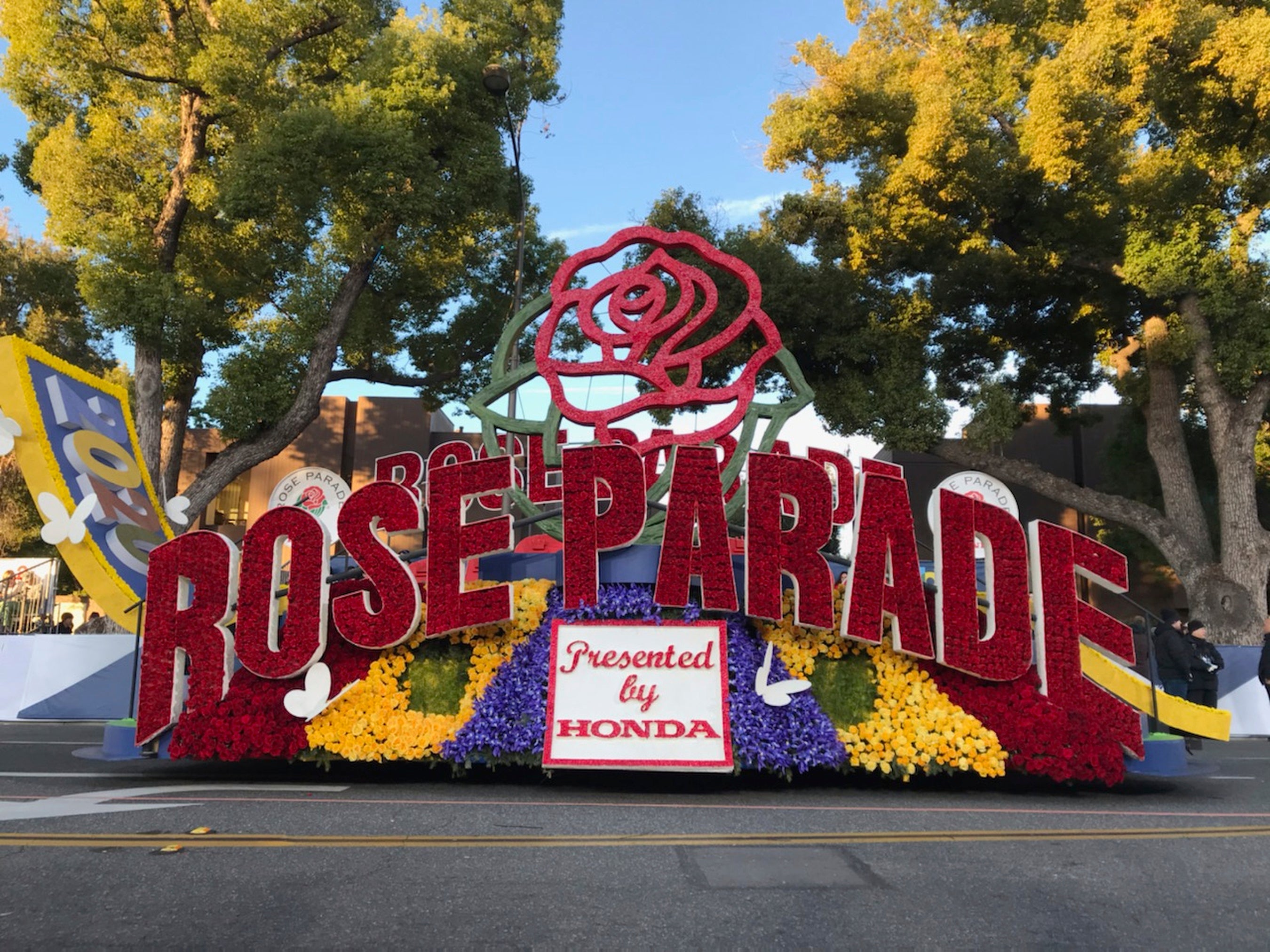New Year's Rose Parade to proceed despite COVID-19 surge
A year after New Year’s Day passed without a Rose Parade due to the coronavirus pandemic, the floral spectacle celebrating the arrival of 2022 is set to proceed despite a new surge of infections

Your support helps us to tell the story
From reproductive rights to climate change to Big Tech, The Independent is on the ground when the story is developing. Whether it's investigating the financials of Elon Musk's pro-Trump PAC or producing our latest documentary, 'The A Word', which shines a light on the American women fighting for reproductive rights, we know how important it is to parse out the facts from the messaging.
At such a critical moment in US history, we need reporters on the ground. Your donation allows us to keep sending journalists to speak to both sides of the story.
The Independent is trusted by Americans across the entire political spectrum. And unlike many other quality news outlets, we choose not to lock Americans out of our reporting and analysis with paywalls. We believe quality journalism should be available to everyone, paid for by those who can afford it.
Your support makes all the difference.A year after New Year's Day passed without a Rose Parade due to the coronavirus pandemic, the floral spectacle celebrating the arrival of 2022 was set to proceed despite a new surge of infections due to the omicron variant.
The 133rd edition of the Pasadena California, tradition was scheduled to feature actor Levar Burton as grand marshal, 20 marching bands, 18 equestrian units and dozens of floats reflecting the theme of “Dream. Believe. Achieve.”
After days of record-smashing rains, forecasters promised a sunny dawn for the 8 a.m. start of the parade, which has an uncanny history of postcard weather.
LeAnn Rimes was set to kick off the parade with a performance of “Throw My Arms Around the World.” Also on the performance list were “American Idol” winner Laine Hardy aboard Louisiana s “Feed Your Soul” float and country singer-songwriter Jimmie Allen.
The parade and the afternoon Rose Bowl football game between the Ohio State Buckeyes and the Utah Utes remained on track despite an explosion of COVID-19 infections in Los Angeles County where daily new cases topped 27,000 on Friday.
The county Department of Public Health said it was the highest number of new cases.
The soaring infections had already prompted Kaiser Permanente to announce that its float, “A Healthier Future,” would not have 20 “front-line medical heroes” riding or walking alongside.
“We must prioritize the health and safety of our front-line medical staff and ensure we are able to treat patients during this recent surge of COVID-19 cases caused by the omicron variant,” the health care network said.
The parade normally draws thousands of fans along its 5.5-mile (8.8-kilometer) route. Many camp out on sidewalks overnight, staking out their spots as early as noon on New Year's Eve.
Pasadena authorities urged people to wear masks, upgrading to the N95 or KN95 types, and avoid mingling with anyone outside their own groups.
The Tournament of Roses Association said ticketholders for parade bleachers and the Rose Bowl game would be required to show proof of full vaccination or a negative COVID-19 test within 72 hours, and masks would be required for everyone age 2 and up.
The 2021 Rose Parade was canceled months ahead of time. The Rose Bowl football game was played after being moved to Arlington, Texas
Previously, the parade was canceled for several years during World War II and the 1942 Rose Bowl game was played in North Carolina after the attack on Pearl Harbor.